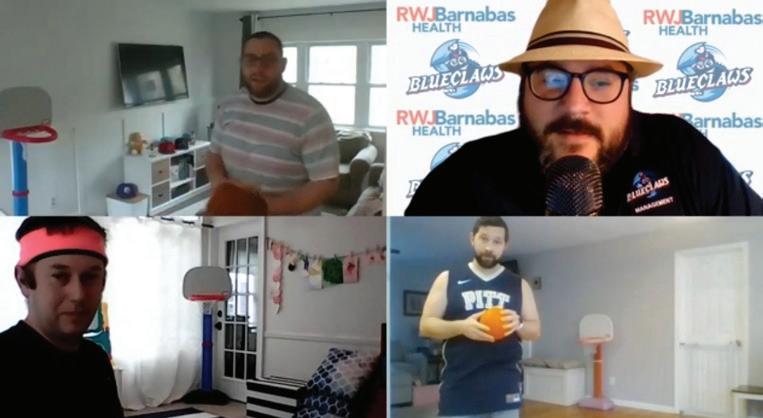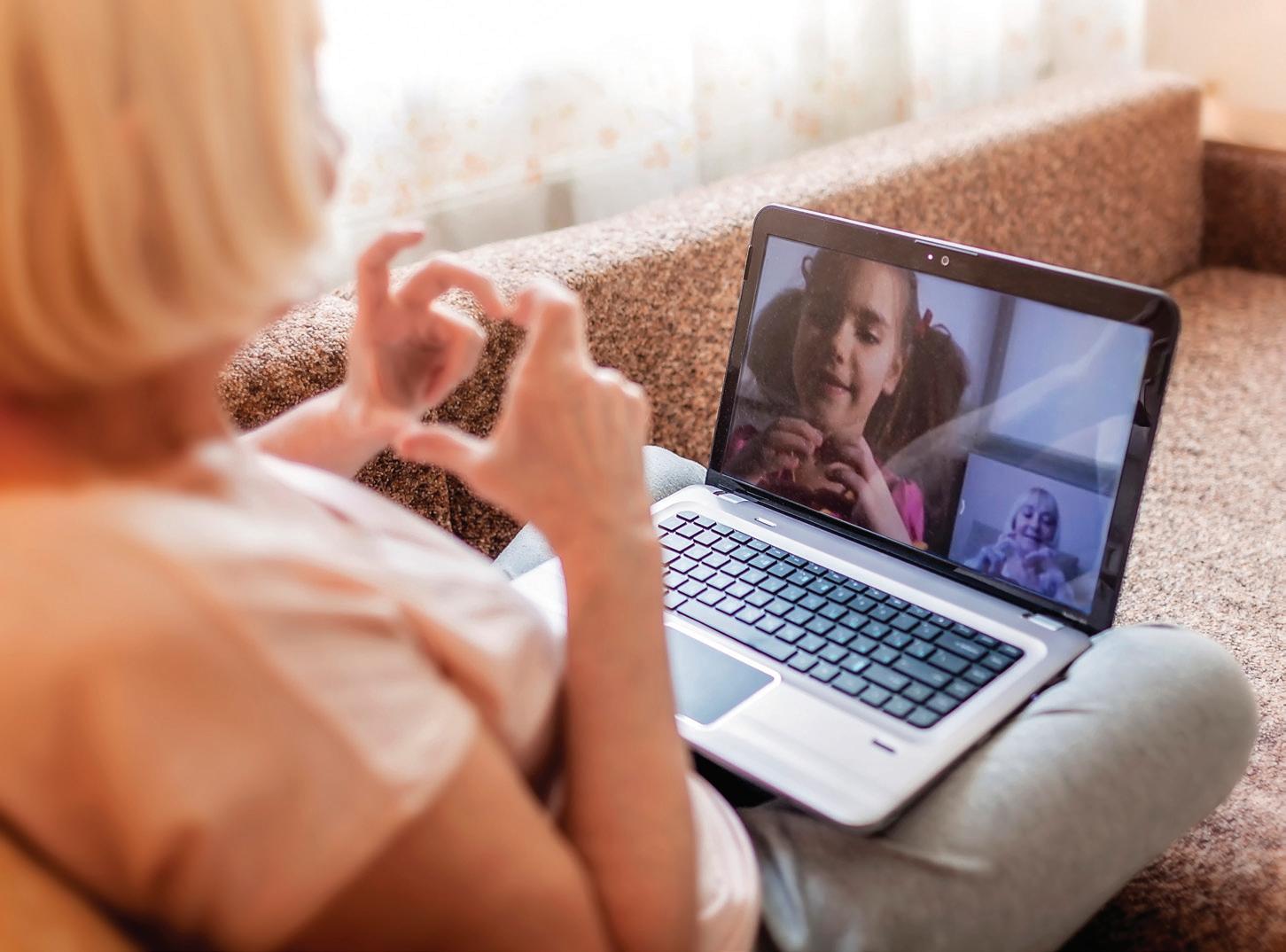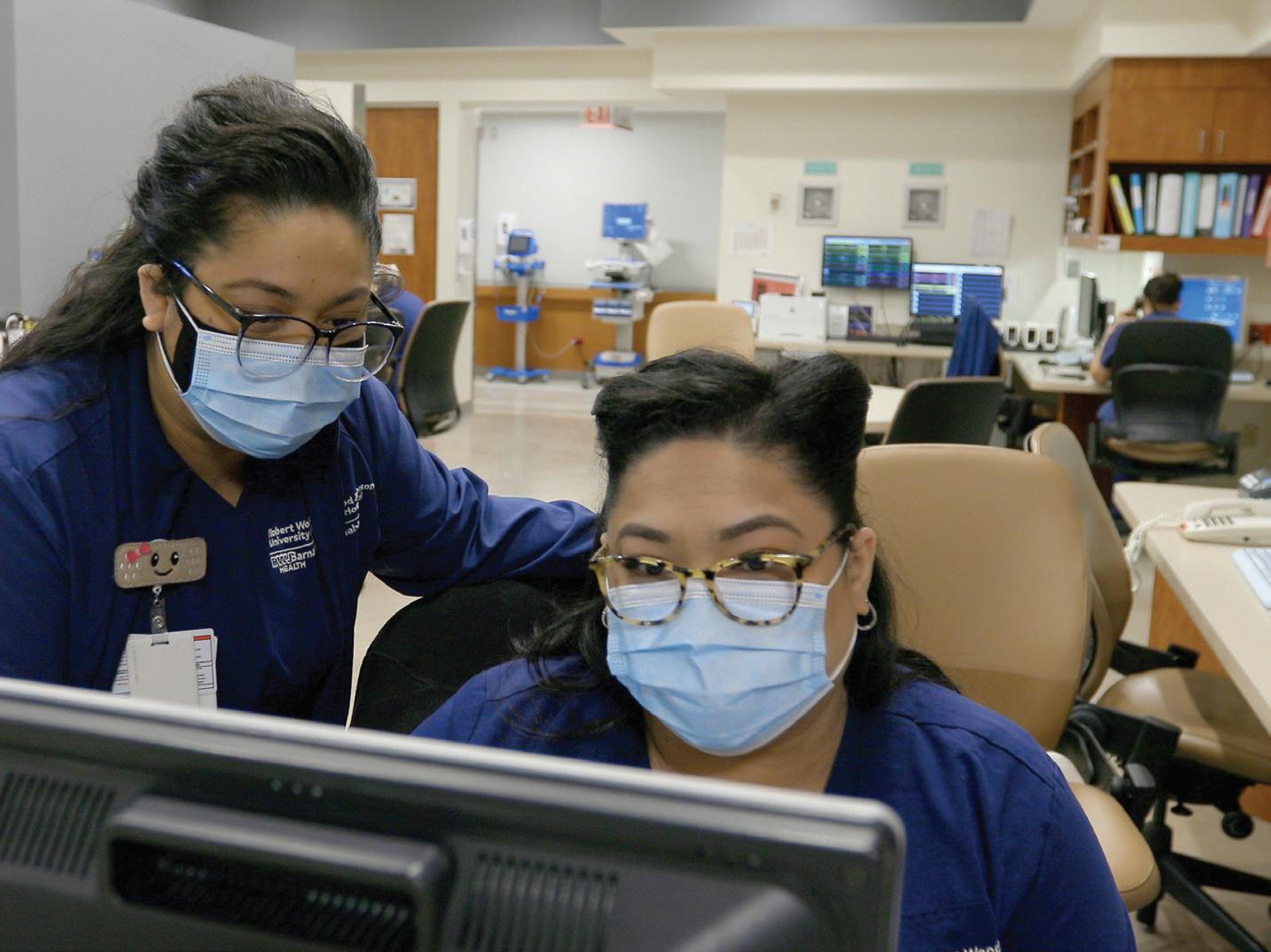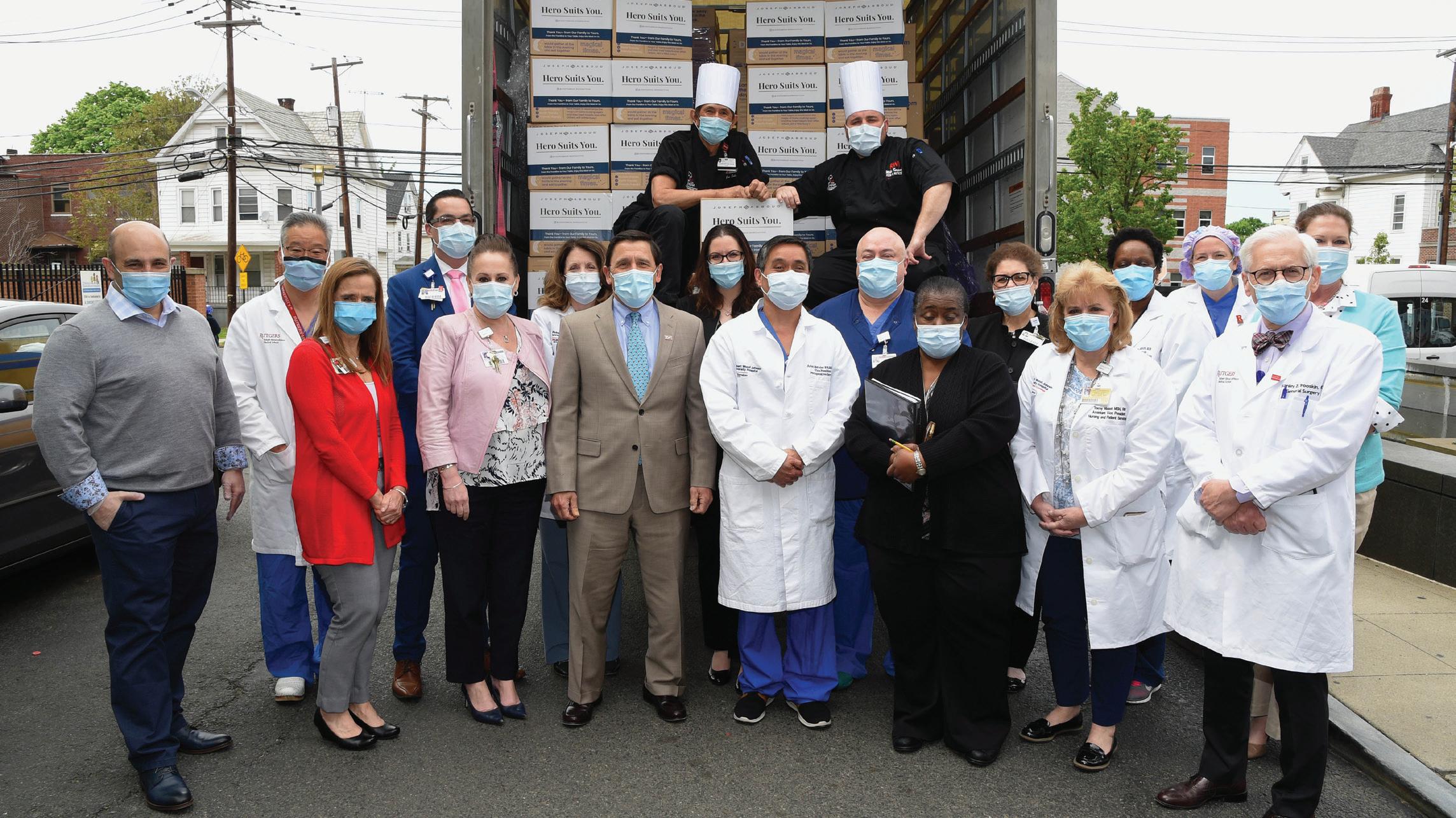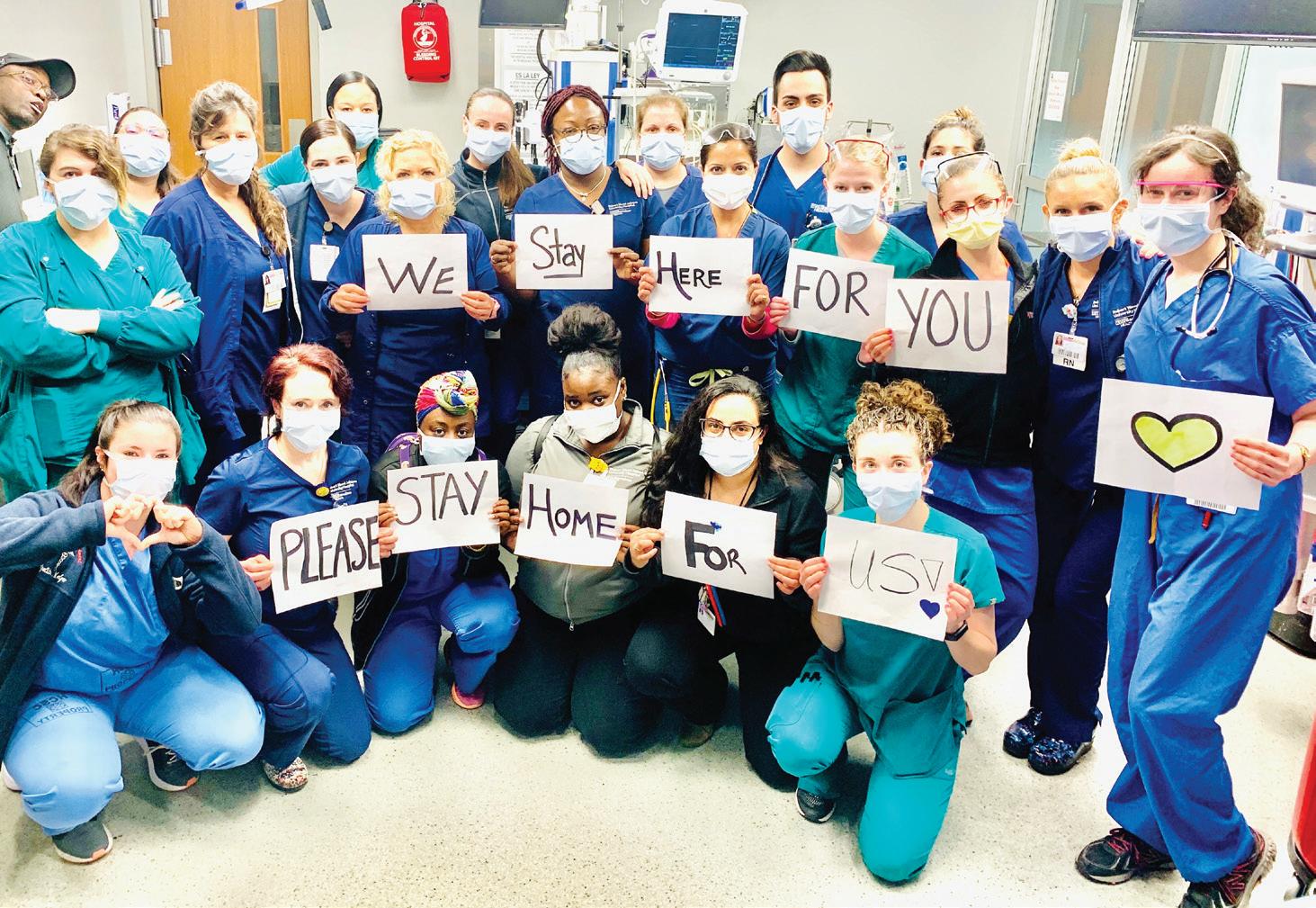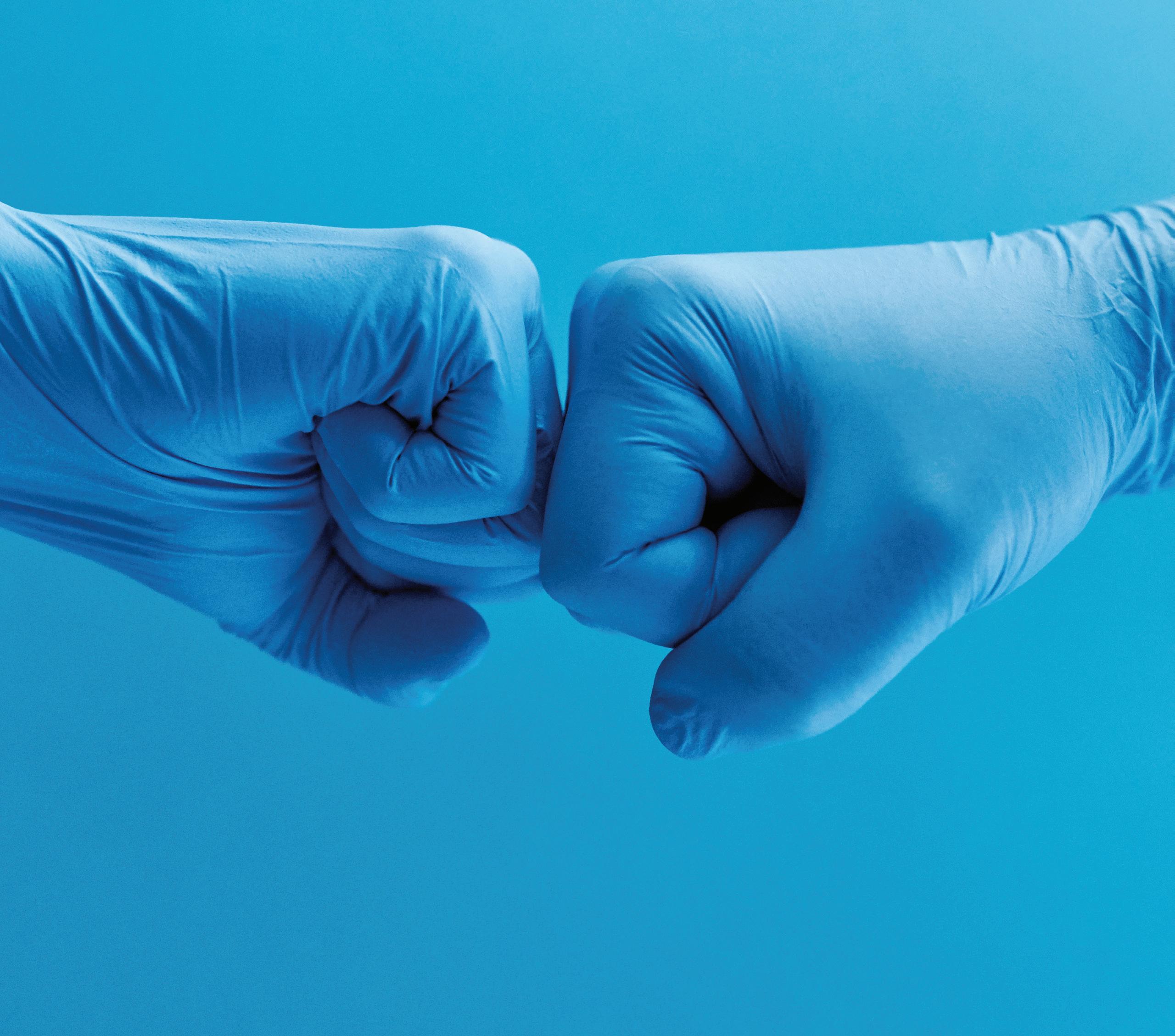
5 minute read
AN UNFORGETTABLE HEART. In the thick
AN UNFORGETTABLE
HEART Program; and Mark Russo, MD, MS, Chief of the Division of Cardiac Surgery and member of RWJBarnabas Health Medical Group.
In January, as his condition affected Surgical Director of the Heart Transplant “ECMO is the most aggressive form of
In early March, Dashawn’s condition IN THE THICK OF THE COVID-19 PANDEMIC, A MIRACLE became more critical. He suffered from HEART TRANSPLANT SAVES A LIFE. repeat episodes of life-threatening cardiac arrhythmias. To avert a sudden D ashawn Womack is thankful to be alive. Diagnosed with nonischemic dilated his liver and kidney functioning, he was transferred to Robert Wood Johnson University Hospital (RWJUH) in New cardiac death, Dr. Ikegami and the team at RWJUH placed Dashawn on two life support devices: extracorporeal membrane oxygenation (ECMO), which temporarily cardiomyopathy, the Trenton resident’s Brunswick. There, he was evaluated takes over the work of the heart and lungs, heart was failing, unable to pump blood and placed on the heart transplant list. and the Impella, a ventricular assist device properly throughout his body. Th is The multidisciplinary team that treated (VAD) that helps the heart pump blood. greatly restricted the 34-year-old’s ability him was led by Deepa Iyer, MD, Heart Doctors hoped that, together, these two to perform day-to-day activities—he Transplant Program Director specializing devices could do the work of Dashawn’s couldn’t even walk short distances without in Advanced Heart Failure and Transplant heart and lungs until a donor heart becoming profoundly short of breath. Cardiology; Hirohisa Ikegami, MD, became available.


Opposite: Darshih Patel, Transplant Coordinator, with heart-transplant patient Dashawn Womack. Above left: Deepa Iyer, MD, Heart Transplant Program Director. Above center: Members of Dashawn’s care team accompany him as he leaves for home following his successful surgery. Above right: Mark Russo, MD, MS.


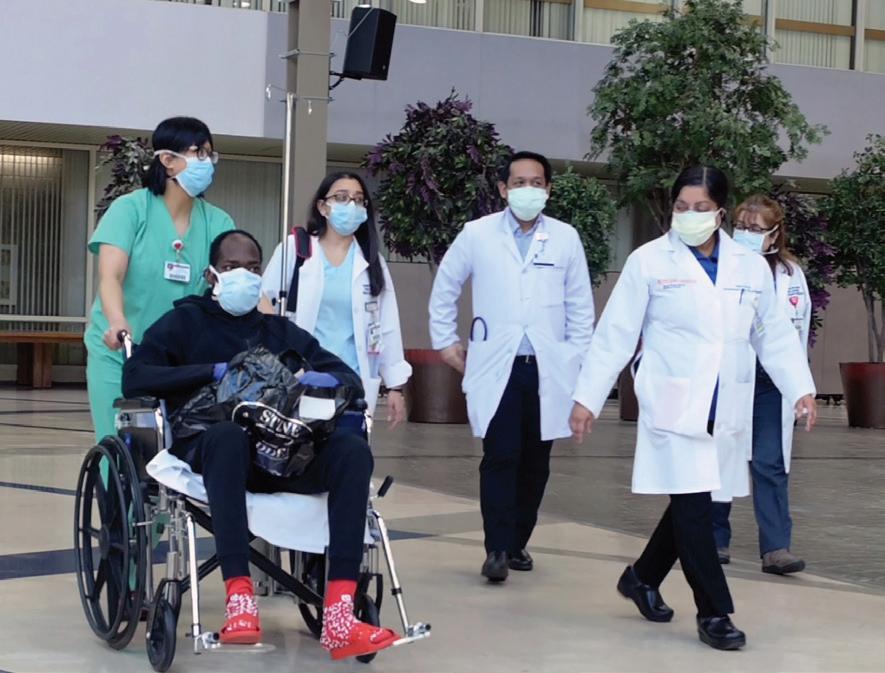
temporary life support available,” explains Dr. Iyer. “It works by drawing blood out of the body, oxygenating it and then returning it to the body. It isn’t meant to be a long-term solution, but remarkably, Dashawn was on the ECMO machine for almost four weeks as we waited for a suitable donor heart.”
COVID-19 CHALLENGES
As they waited, Dashawn’s care team focused not only on stabilizing him for a transplant surgery, but also combating additional challenges presented by the COVID-19 pandemic.
“I’ve been involved in hundreds of transplants, and this case stands out for so many reasons,” says Dr. Russo. “First, I can’t remember a patient who survived as long on ECMO support while awaiting heart transplant. Also, we needed to protect against COVID-19, which would have severely impacted Dashawn’s already fragile condition and precluded us from safely going forward with the transplant. Finally, for a variety of reasons related to the new realities created by this pandemic, already scarce donor organs have become critically scarce.”
On April 6, more than two months after he entered the hospital, Dashawn got the good news from Dr. Iyer that there was a suitable heart for him. “I was so happy,” says Dashawn. “I didn’t really have any fear. My mom passed away from the same disease so I knew if didn’t get the transplant I wouldn’t be here anymore. I knew it was something I needed to do.”
That night, Dashawn received his new heart. “The transplant couldn’t have gone more smoothly,” says Dr. Russo. Just five days after his heart transplant, Dashawn was walking. After only nine days, he went home.
“It’s really a miracle,” says Dr. Iyer. “There were so many factors that made this case very complex. To see him up and walking just five days after his transplant was a special moment for our entire team. It was just incredible.”
GAINING A SECOND FAMILY
For Dashawn, his care team at RWJUH has become a second family. With strict visitor restrictions in place due to COVID-19, he relied on their support, compassion and friendship during his hospital stay. His team helped keep his spirits up and arranged for FaceTime conversations with his family.
“It’s all about the people who surround you,” says Dashawn. “Everyone has been great and helped me get my life back. The doctors and nurses all really care. You can tell this is much more than just a job for them. They’ve all become my second family. I’m really grateful.”
Dr. Iyer feels the same about Dashawn. He’ll continue to be treated by her team indefinitely. “He’s part of our family now,” she says.
In addition to Drs. Iyer, Ikegami and Russo, Dashawn’s physician team included Drs. Kenneth Dulnuan and Danyaal Moin, who also specialize in Advanced Heart Failure and Transplant Cardiology. Other members of the care team included specially trained and certified nurse practitioners; cardiac anesthesiologists; cardiac perfusionists; critical care specialists; registered nurses; registered dietitians; pharmacists; social workers; cardiac rehabilitation therapists; and other medical professionals dedicated to heart care.
“It truly takes a village to care for critically ill patients like Dashawn,” says Dr. Iyer. “Doing so during a pandemic adds to the complexities, but at RWJUH we have the right systems in place and the caregivers to ensure we can provide the highest level of care.”
Dashawn is recovering at home, where he’s practicing strict social distancing measures to avoid any complications post-transplant. “I’m really happy to be home, feeling good and looking forward to hopefully being able to return to work once I’m recovered and the coronavirus is no longer a threat,” he says.
“Dashawn’s case is likely one that not one of us will ever forget,” says Dr. Russo. “At a time in our history marked by fear and untimely death, Dashawn demonstrated remarkable courage, persistence and a will to live. He has been an inspiration to all of us at a moment when it has been greatly needed.”
Your heart doesn’t beat just for you. Get it checked. To reach a Robert Wood Johnson University Hospital cardiac specialist, call 888.724.7123 or visit www.rwjbh.org/heart.


